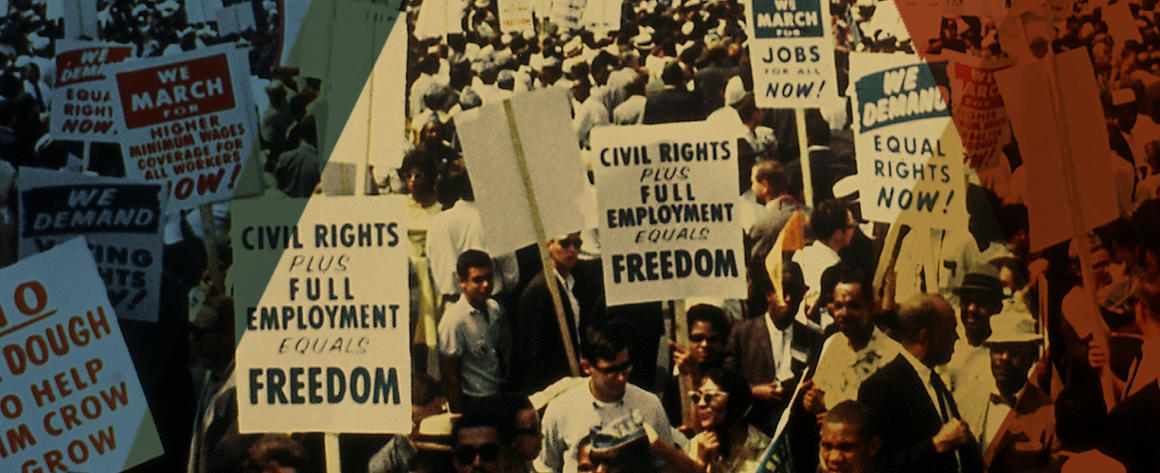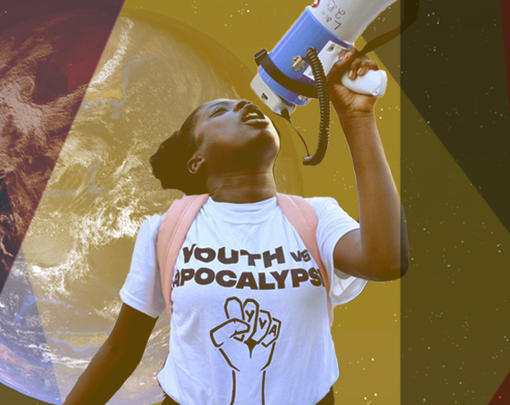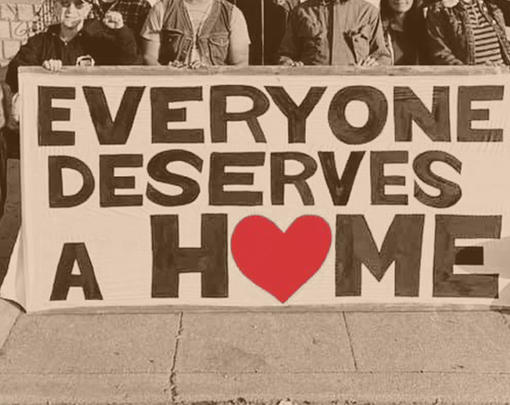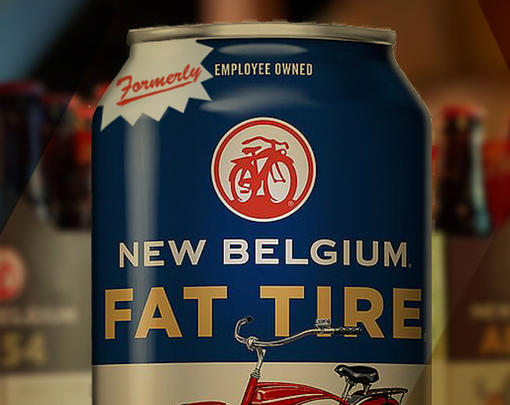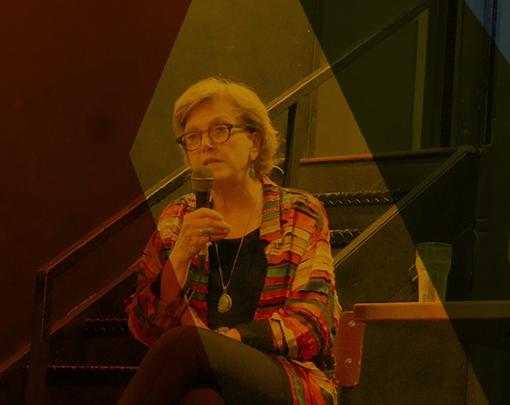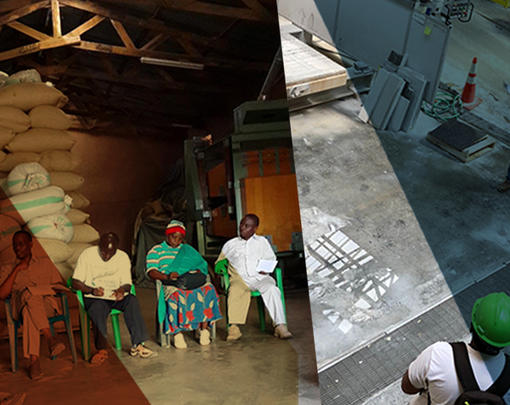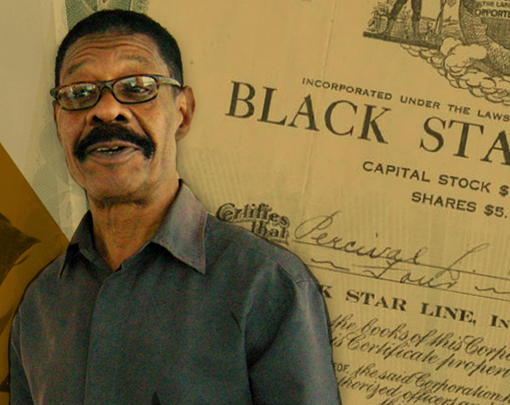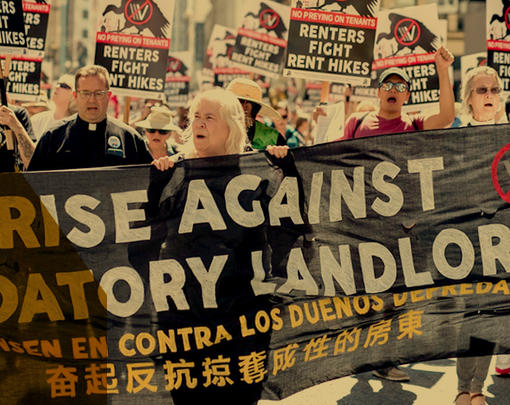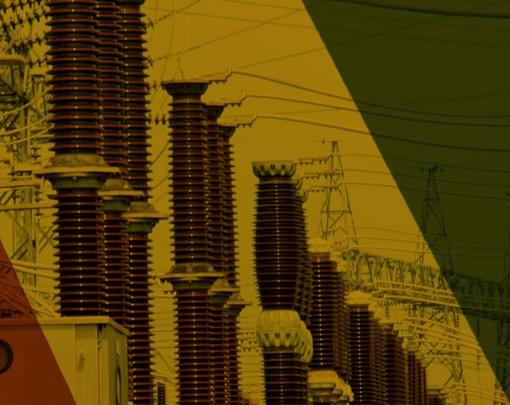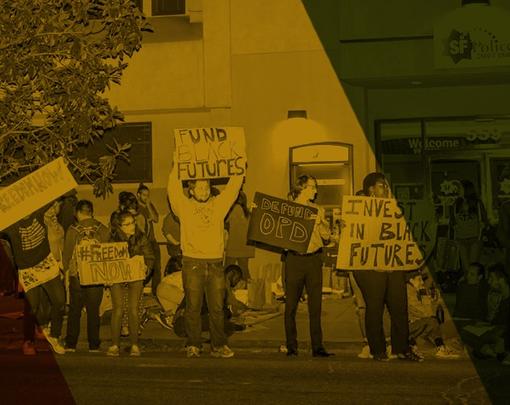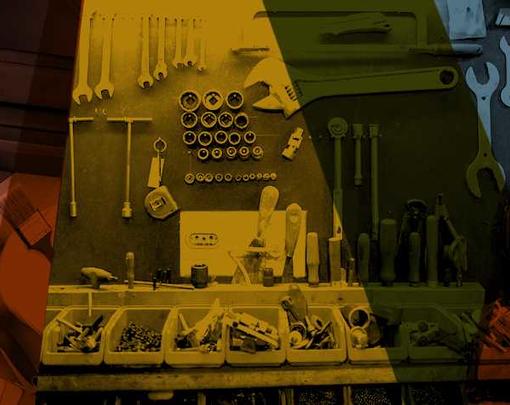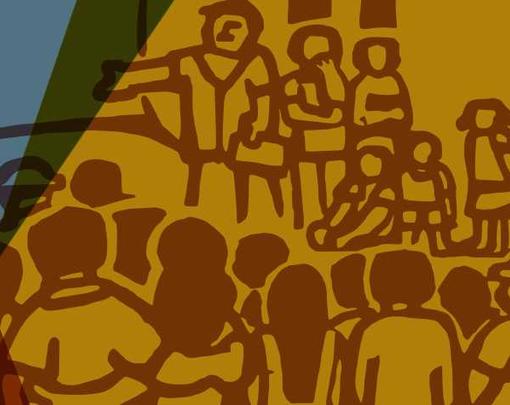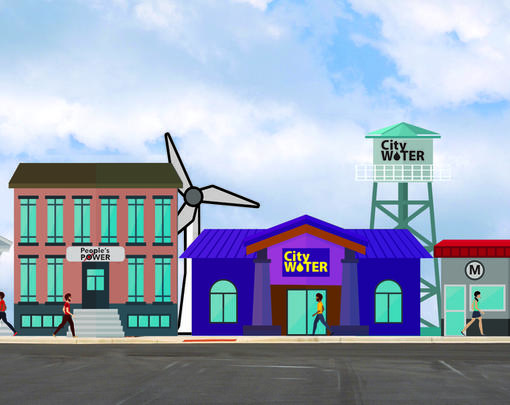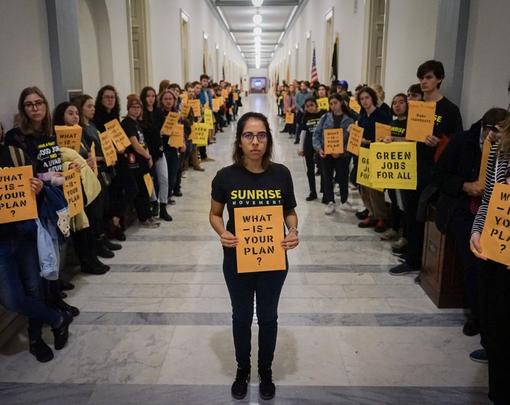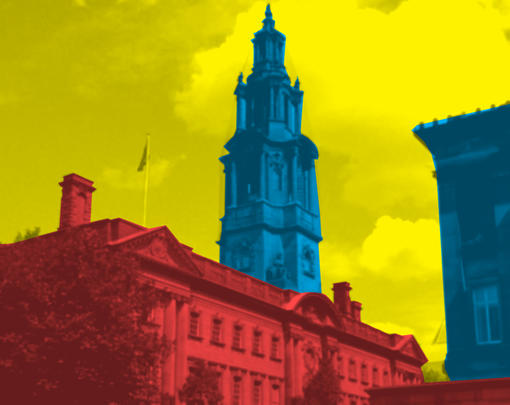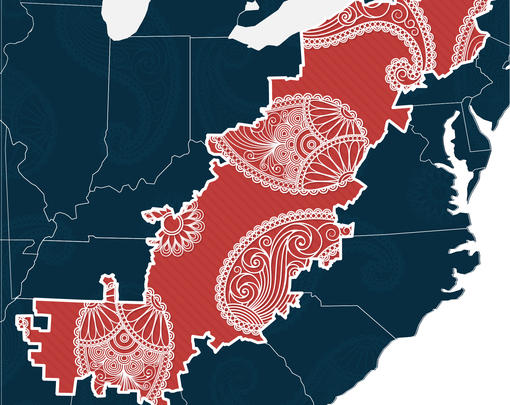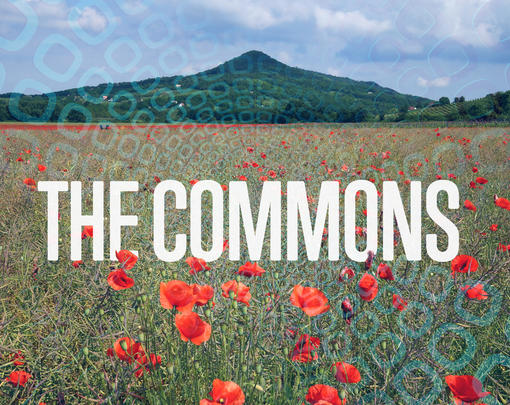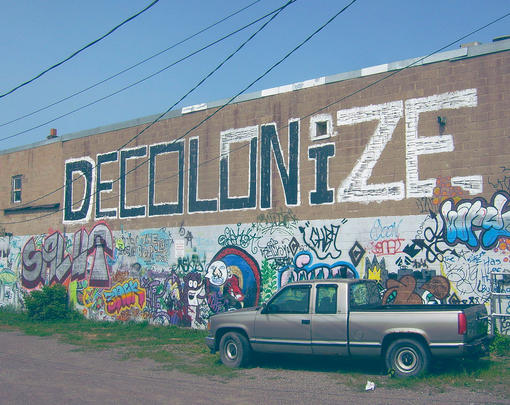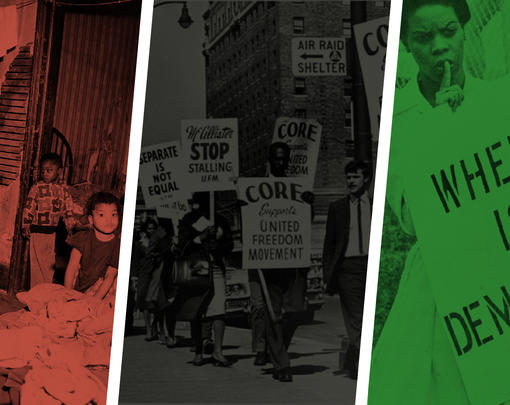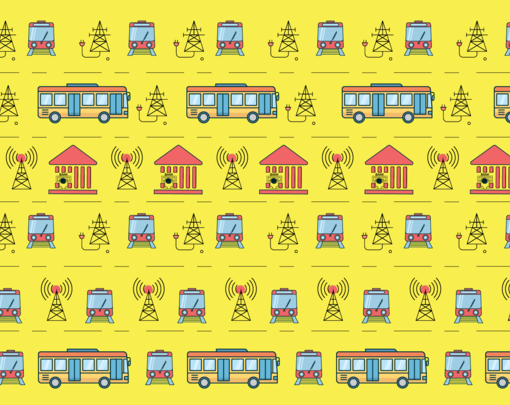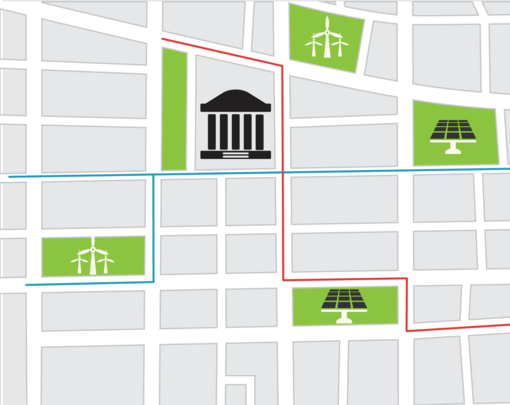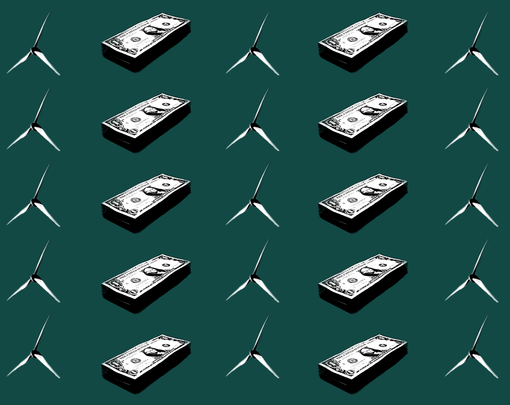Voiceover: Jobs, jobs, jobs—that old cliché. It was an oft-repeated slogan in a Florida senator’s early campaign in the wake of the 2008 financial crisis. It used to be that any time the candidate wanted an easy win at a campaign event, they would reference jobs. They’d say they would protect the jobs of their constituents, that they would bring more jobs into their district, that they’d secure the interests of job creators.
Now, as more and more people find themselves moonlighting a side job just to be able to afford going to their main one, or working part-time at three different places, one might start to wonder whether another job is really what we need.
Hi. I’m Luís Garcia de la Cadena, producer of the Next System Podcast. In this episode, we’ll be talking about the job guarantee.
For long-time listeners of the show, you’ll know that we covered this back in December 2017, which truly seems like a lifetime ago now. You’ll recall that the biggest story that month was the Trump tax cuts that were to bring back the so-called booming economy of the 1980s by giving the wealthy elite of this country their own personal stimulus package. Now, three years later, we can see how the “full-employment economy” really looks in full swing.
Conservatives call this a win but today, we’ll be hearing from two experts on the jobs guarantee who say that’s not enough.
Now, your host, Isaiah J. Poole.
Isaiah J. Poole: Welcome back. Last December, PolicyLink, the National Jobs for All Network, and the Modern Money Network launched the “Job Guarantee Now!” campaign. Their manifesto puts forth a reality where all who need a job with a living wage get one, and where the conditions for joblessness no longer exist. With me is Sarah Treuhaft, Managing Director of Policy Link. Sarah, welcome to the show.
Sarah Treuhaft: Thank you for having me.
Isaiah J. Poole: The Jobs Guarantee manifesto has 10 principles. Which would you want to highlight for those just being introduced to it?
Sarah Treuhaft: I would highlight principle No. 10 around a stable economy. Right now, we’re hearing bits around heading into another recession. It’s a possibility, right? It’s been flagged. But if we put a job guarantee in place now, that would stabilize our economy because people would be able to take up job-guaranteed jobs and continue to spend. So, over time a job guarantee would stabilize the economy for people, for businesses – I think that’s an important principle.
The second principle that I would highlight is No. 5 around productive and meaningful work to ensure that projects produce tangible public community benefits and are meeting the needs in communities, especially in distressed communities that have been disinvested in for decades. So we can choose projects and projects should be locally chosen and have community participation that are addressing our climate change challenge that are addressing our need for childcare, for support, for our education system, for caring for the elderly as we experienced this demographic shift. So the products of the work are very important to think about in terms of a job guarantee in addition to the jobs themselves.
Isaiah J. Poole: Well, one of the things that we learned from a recent Brookings Institute study is that 44% of all workers are low-wage workers with a median income of $18,000 a year. And that certainly speaks to the fact that what may economists and politicians are calling full employment is actually not full employment to the extent that it reflects full prosperity for people.
Sarah Treuhaft: Right. That statistic, that 44% of workers earn less than $18,000 a year, it’s truly shocking and under the radar screen, given the national discourse around the economy doing well, right? So how do you live on $18,000 a year anywhere in this country? And it’s also unconscionable, given that top CEOs are earning some $19 million per year on average. So working poverty is a huge issue we need to address, and a job guarantee helps do that.
Isaiah J. Poole: Certainly it points to the idea that we shouldn’t be simply creating jobs for the sake of creating jobs, but we really need to make sure that the jobs that we are creating are jobs on which people can live.
Sarah Treuhaft: Absolutely. There’s so much fear around automation and the future of work, and it really is about the future of good jobs, the present providing good jobs. We need strategies that can raise the floor and ensure that all jobs are good jobs.
Isaiah J. Poole: Is there something in your personal life, or your personal experience, that sort of drives your passion around this issue?
Sarah Treuhaft: Yeah. I’m a working-class kid. My parents didn’t go to college. They divorced when I was seven years old. My dad did well for himself. He owned a small business, a used auto and truck parts place. But my mom worked in retail and customer service her whole life, and I saw her struggling with bills and debt, and so I personally was taken care of, I went to college and didn’t have an extreme amount of debt, but I’ve helped my mom as she’s struggled and I’ve seen that. So I have a passion about workers and ensuring all workers are paid what they deserve and paid enough to live on. Also, my mom was tremendously anti-racist, and I now work at PolicyLink, which focuses on racial equity. I want to be part of changing the structures of our society and our economy so that everyone has access to enough to live on and doesn’t need to struggle with piecing together multiple jobs and struggling with debt.
Isaiah J. Poole: Last question: Given that we have just completed a series of presidential debates, it feels to me that this issue is not nearly getting the attention that it deserves. It feels as if that is going to be costly for any candidate who wants to get the support of all of these voters who are struggling with low-wage jobs, that they are not being heard, that they’re not being appealed to.
Sarah Treuhaft: I agree with you. I want to see more discussion of a federal job guarantee in the debates. There is one candidate, Bernie Sanders, who has talked about it, and it’s a core part of his economic policy agenda. He mentioned it in one of the debates. But we need to be making this demand for it, and that is part of why we put out the job guarantee manifesto and will continue to be making that demand, that a federal job guarantee is part of the policy debate and that other candidates get on board with this policy.
Isaiah J. Poole: Sarah, thank you again for joining us.
Sarah Treuhaft: Thank you.
Isaiah J. Poole: And now, we want to talk to Darrick Hamilton, who’s the executive director of the Kirwan Institute for the Study of Race and Ethnicity, and a professor of policy and economics at Ohio State University. Darrick, welcome to the podcast.
Darrick Hamilton: Thank you; glad to be here.
Isaiah J. Poole: Now we spoke to you back in 2017 about the jobs guarantee, and one of the first things I want to know is what has changed in the last couple of years, particularly given what we hear in the news all the time about our being in a full-employment economy, people saying there are plenty of jobs out there. You still feel that this jobs guarantee is relevant to today. Why?
Darrick Hamilton: Well, a few things. One, the first part of the question you raised of what has changed, I think momentum is building, despite what is seemingly a good economy if you use all traditional metrics of what a good economy is. Despite that, there is still momentum for big bold ideas to transform our society.
And why did I say, “Traditional measures of what a good economy means”? It is because we end up with the oxymoronic notion of having a job but not a good job. Not a job that has economic security where you know what your pay is going to be from week to week, where you know the number of work hours you have from week to week, where you can count on a pension when you retire, or some health benefits associated with your job, or a wage that can afford livability in an urban area.
All these things still matter.
So just looking at the unemployment rate, which by the way, we know doesn’t capture the people who’ve dropped out of the market, I think it’s not really the best metric of how well we’re doing. We need to rethink how we measure economic well-being. That said, the need is certainly there, the need for a federal job [guarantee] to ensure that we have not only an adequate number of jobs, but an adequate number of good quality jobs, right? So we should be thinking about not just whether there is a quantity of jobs, we should be thinking about quality of jobs, and then the last component I’ll say and then I’ll slow down a little bit, is access. We want to make sure that there is decent access for everyone regardless of your racial background, your gender. So a federal job guarantee doesn’t just provide a quantity of jobs. It provides quality job and it enhances access—and not only for those people who are unemployed or out of the labor market, even those people that are currently working. So if you are employed and your employer is imposing upon you conditions that are not reasonable, that are unbearable—take for example a woman who is working as a waitress and puts up with sexual harassment—having a federal job guarantee at least offers an alternative so that that worker won’t be destitute if they lose that job, and that very well might empower that worker where they are to bargain for better benefits, wages, and working conditions.
Isaiah J. Poole: So what you’re pointing to sounds very much like structural change in the job market. Again, you said not just quantity, but we’re moving toward creating a different kind of workforce where we’re kind of changing the definition of what jobs ought to be, right?
Darrick Hamilton: That is it. We’re looking for transformation. We are at a juxtaposition in society. I mean, we can talk about the moment we’re in. Clearly we have Donald Trump as president and he is the antithesis for some of the policies that we are recommending and talking about. However, his election to me is indicative of a revolution.
Unfortunately, it’s not the revolution that I’m calling for or I’m supporting, but if we think of, certainly, Senator [Bernie] Sanders, he’s talking about a different type of political revolution. And my point in bringing up Donald Trump is the appetite is certainly there in America for big, bold, transformative change.
The status quo of what we have been doing, that doesn’t seem to be working in America and we are ready for change.
Isaiah J. Poole: So let’s talk about more, a little bit… dig deeper into that. What kinds of reforms would we need given where the economy is right now? Particularly given the way corporations operate, one of the things we have is the gig economy.
So what would you say in terms of structural reforms?
Darrick Hamilton: Yeah, and let me also reiterate what that status quo that we are reacting to has been. That status quo has been 45 years of increasing American productivity where all the gains from that productivity have gone to the wealthy and the upper-middle-class, where real worker wages have remained roughly flat. And that has culminated in a concentration of wealth, where the top 0.1%, those making above $1.5 million a year, own as much of the nation’s wealth as the entire bottom 90%.
So this type of plutocracy where you have that type of concentration and that gives you economic power to impose your political will by using your economic might to buy political desires or outcomes, that is problematic and not sustainable. So that is what we’re reacting to.
Isaiah J. Poole: What you reminded me of—I don’t know if you’re familiar with Jacob Hacker.
Darrick Hamilton: Mm-hmm (affirmative).
Isaiah J. Poole: His book, The Great Risk Shift.
Darrick Hamilton: Great book.
Isaiah J. Poole: He talks about how all of the economic risks have shifted to those of us who are on the bottom of the economic ladder, in addition to all of the gains and benefits rising to the top.
Darrick Hamilton: There’s a few books that are out there that are describing the moment that we’re in and how we got here. Some that stand out are [Thomas] Piketty’s book. Another book that stands out is Nancy MacLean’s book, where she talks about the strategy that was involved in fusing this neoliberal movement, how intentional it was, where the rhetoric of market-based solutions as the great arbiter—efficient, colorblind, allocator, fair—and it was that this neoliberal movement was imposed by strategically using race.
The imagery of undeserving welfare queens, deadbeat dads, and super-predators, that was clearly racialized. Dog whistle, dog-whistle work. So this is the moment that we’re in. And I think after seeing 45 years of what was supposed to be a dynamic economy that would trickle down to all of us, I think the public has now caught up in the…what’s the right word? The con is over, maybe that’s the more accurate way to describe it.
So we again, if we think about the political moment, we’re at a point where we have somebody who can come in with despotic rhetoric about building a wall, making America great again, or the other term that he used that didn’t get as much play in his campaign was I’m your last chance. And what was he-
Isaiah J. Poole: “Only I can fix it.”
Darrick Hamilton: Not only I can fix it, I’m your last chance against this demographic shift in which Whites will no longer be a numerical majority. So it’s not a coincidence that he went after the Latinx population, whose population size is expected to grow, and by the way, demography is not going to save us so this notion that Whites will be a numerical minority and then we’ll have a racially inclusive society, don’t count on it because the definition of White changes over time. White really is a placeholder for what means the in group.
What really drives this system is having the persistent underclass which is Black, which is why we have these anti-Black policy.
So that’s one way that America can go, and that’s a scary future for us. Another way for us to go is to think about an iteration in our rights frame from civil rights to economic rights, where we start thinking about the use of public power, the enormous use of our public power to enable structures and resources so that people have what they need to be their best selves and have self-determination and agency in their lives.
What will that entail? Federal job guarantee. What will that entail? A right to health insurance. What will that entail? A right to the finance. We need to think about public banking, where people who are low-income are not at the whim of a finance system but have access to an adequate account, have access to some liquidity so that when there’s a short-term fall in their ability to pay their bills, they can get credit at reasonable terms. Have access to credit more generally so that they can purchase an asset that will appreciate over their lives.
This is the society that I think would be a more perfect evolution in American history. And then I’ll say this and then I’ll stop for a while, I know I’m rambling on: We need to be race-conscious when we do this. We need to ensure that in this iteration of an economic Bill of Rights, in this iteration that’s reacting to corporate power that has gone out of control, similar to how the Gilded Age, we had a consolidation of corporate power that nearly collapsed the American economy, and in response we had the New Deal, we need to make sure in this iteration of a New Deal, in this iteration of an economic bill of rights, that we are intentionally racially inclusive.
Isaiah J. Poole: So let’s talk about one of the steps that you put forward to get to this place. You had legislation with Senator Cory Booker (D-N.J.) that would have allowed for a pilot of a jobs guarantee in about 15 communities. So how would that have worked?
Darrick Hamilton: So congratulations to Senator Booker for having the boldness to put forth that legislation, and there were several other co-sponsors as well. I should point out that Representative Ilhan Omar (D-Minn.), as well as Senator Sanders, are talking about a full comprehensive federal job guarantee. It’s not even just the pilot but rather full implementation.
But it would work really as it says, that the federal government would be a guarantor of employment to ensure that everyone who desires to work would have access to a job, and not just any job like we’ve been discussing, a job with adequate wages, adequate benefits, and here’s another key point and it relates to the Green New Deal, a job that is improving upon our public infrastructure. In some ways that these federal jobs would be different from perhaps the New Deal where we had the CCC [Civilian Conservation Corps] and the WPA [Works Progress Administration], is that we would perhaps be even more intentional about human infrastructure investments as well.
For example, we could create an entire care economy with these federal job guarantees to ensure that there’s quality care from child care, adult care, elder care, all the way throughout our life horizon that people have access to the care that’s needed, for example. And then green our economy: Imagine using the federal job guarantee to make us sustainable to deal with the fact that this climate crisis is going to have distributional effects where those that are most vulnerable, Blacks, Latinx, other vulnerable groups, low-income Whites, that we have the federal government intervening in a way to not only reverse, I shouldn’t say not only because this is tremendous, reverse the course of Earth’s degradation, but to do it in a way that’s equitable.
Isaiah J. Poole: And there’s the big pay-for question, which I know you have an answer for.
Darrick Hamilton: Well, one problem is we start with the scarcity frame when we think about these big bold ideas. So I’m going to get to your answer but I’m going to talk a little bit about framing. We certainly don’t ask this question when we think about, and I say this sobering, sending a bomb to Iran, which unfortunately is obviously problematic. We certainly don’t think about the pay-for question when we’re thinking about military intervention. That becomes not even part of the conversation.
Isaiah J. Poole: But more importantly, we didn’t think about it when we did the corporate tax cuts a couple years ago.
Darrick Hamilton: Exactly. That greater-than-$2 trillion over the next decade tax cut, that pay for question wasn’t asked at all. So let’s put that into context first. And is that tax cut going to destroy the economy? The answer is no, it’s not going to destroy the economy. It’s going to shift the economy in an unjust way where those that are at the top will be more enriched. It’s going to lead to greater racial dispersion as a result of that tax cut. When we think about, for example, people not being able to deduct their state and local taxes the way they have in the past, that’s going to impose upon states the need to have austerity policy because they are not like the federal government where they can run deficits the way the federal government can, and as a result they will have to increase fines, fees, and other sources of revenue. And who are most vulnerable to that? Those that have less political and economic power. So we will see greater impacts on certain racial groups as a result.
So those are all examples of distortions that are predatory as a result of this tax cut that’s going to enrich those that are in more elite positions either through the corporate sector or simply having a whole lot of their resources in the form of non-wage income, for example. So that’s the context that we’re thinking about this pay-for question., that one, the federal government has great amount of resources to pay for things. But then we can also think about the cost savings that would come along from a federal job guarantee, such as our public social safety net would not be one that’s simply dealing with subsistence but rather one that’s trying to impose upon economic mobility, but it would result in some cost savings from other types of federal subsidy we would have to give, because now people would have adequate income and a job that’s productive.
So the price tag is large but the benefits far outweigh the price tag. When we think about communities that are suffering from low wages and unemployment, not only does it impose economic costs, it imposes mental costs, psychological costs on a community. It leads to incarceration. We can keep going on and on and I can even give you specific numbers about the price tag, but frankly, it might not be the best use of our time. But I have written with co-authors that actually lay out a plan for a federal job guarantee, and certainly if readers are interested please check out a Russell Sage Press publication that’s co-authored with William Darity, Mark Paul, and myself which would describe some of the details of a federal job guarantee.
Isaiah J. Poole: Certainly the federal government in a way has proven that if we can go into debt for corporate tax cuts, we can certainly go into debt for reinvesting in our people and in our communities.
Darrick Hamilton: Yes, and it would have a stimulating effect as well. It would generate a stimulus to the economy that would create a multiplier that would actually grow our economy in a just way. It would lead to economic growth. So we’re talking about investments in productive use, both physical and human infrastructure, which history has shown us through the New Deal that our economy will grow as a result.
I should also mention another aspect of it. It provides regional balance. So those areas that are perhaps in economic decline, suffering from unemployment, well that is where the stimulus will go towards in a disproportionate way, and as a result we would have more balanced growth and communities that are in despair, Black or White, would benefit a great deal from a federal job guarantee. And as we have this more equitable growth, you know what else it will lead to? Greater civic engagement. Social equity leads to civic engagement, people will feel better about their society, more invested in it.
And perhaps some of the racism that we’re seeing, some of the anxiety about—”anxiety” is not the right word—some of the bigotry around religious affiliation. If we have a more collective society that has economic balance, civic engagement goes up and so will some of that stratification around identity politics that really we hope kind of goes away.
Isaiah J. Poole: Thinking strategically about how you advance a policy like this, you mentioned that there is the national program at the federal level, there is legislation that would pilot this at the federal level in a few places, and presumably if people like the results of that then it would spread nationally.
What about the idea of cities and states taking this on themselves and not waiting for Washington?
Darrick Hamilton: They need not wait for Washington, as you point out. One constraint on cities and states that Washington doesn’t have is deficits. They can’t run deficits the way Washington can. And by the way, part of the problem with our society is demonizing that word deficit. There is no problem with the federal government investing in its most valued resource, and that’s its people. The problem is if we run deficit spending on things like a tax cut that distorts our economy in a way that leads to plutocracy, where we enhance the power of one group at the expense of others; a problem in our society if we used deficit spending for weapons of destruction.
But if we’re using deficit spending on our greatest assets, its people, perhaps even using the term deficit is not the right word. It’s an investment in America’s future, and that is the way we should be thinking about spending our resources.
But back to your question, there are certain municipalities, take New York City for example. I’m going to give you a number because I don’t know the number. I think the New York City budget is something in the area of $90 billion. So if New York’s budget is about $90 billion, a place like New York City most certainly has capacity to think about targeted jobs that are guaranteed in some way.
I mean, New York City could, for example, say, “We will pick neighborhoods that reach a certain level of unemployment. And if a resident, you know, we want to avoid gentrification, if you’re from that neighborhood and can demonstrate that you’ve resided in this neighborhood say five, 10 years prior or something like that, then you will be eligible for a productive job with a decent wage and decent benefits.”
How transformative could this be? And those jobs could go towards enhancing New York City’s infrastructure. Like I said, physical and human infrastructure. So we don’t have to wait on the federal government. But ultimately, the federal government is the endgame of where we get this so that it’s permanent, sustainable. But, you know, as you kind of alluded in the question, politics are local, and we can begin local and build up until we get the transformation that we desire.
Isaiah J. Poole: Here in DC, in fact, the summer jobs program that started under Mayor Marion Barry back in the 1980s, for young people I think between the ages of 16 to 19, the city guaranteed every young person a job. So it reminds me that such a thing is possible. It’s been done on a small scale with teenagers. Imagine if you could build on that.
Darrick Hamilton: Absolutely. I mean we have precedent. We can look in DC, as you pointed out, but frankly we can look in American history. We have precedent with the CCC, the WPA of, in this case, federal government enacting it, but it being administered at the local level where masses of unemployed people were employed almost overnight.
Isaiah J. Poole: So how do you see this unfolding over the next few months in terms of the momentum to drive the effort?
Darrick Hamilton: Yeah, I mean what I see happening is we are at a juxtaposition in society. We risk having a myopic approach that’s transactional where we’re thinking about what seems feasible, and I put the word “seems” in there intentionally, in a manner that we sacrifice our values. I hope that doesn’t happen. The alternative, and where I believe in investing myself in how we can go, is towards some bold, values-driven vision where we don’t compromise on certain things such as economic inclusion, civic engagement, social equity; that we think about transformative policies again in this economic rights frame that are grounded in dignity, that are grounded in morality. We start thinking about a moral economy. A whole lot of credit to the Poor People’s Campaign with leaders like Rev. William Barber and others, where they’re talking about economic justice being a moral imperative. This is where we need to be going.
But we need to get to the point where political economy is about using public power to curtail out of control corporate power, but to do more than that. Public power being used to empower its people, empower its people with certain essential goods that should not be at the whim of the market using some price rationing mechanism to determine access, to determine quality, and to determine quantity. That as a society we make a decision that all of our people will have adequate health insurance. That as a society we make a decision that all of our people will have access to not only grade school education, but education from kindergarten all the way through college.
These are things that we can afford. These are things that we can do. This is the transformation that we need to get to reverse that trend of inequality from the last 45 years where we believed in some rhetorical aspirations that this mythical market was somehow natural, was somehow colorblind, was somehow efficient and a great arbiter of who is worthy and who is not worthy.
Isaiah J. Poole: Well, Darrick Hamilton, thank you very much.
Darrick Hamilton: Thank you.
Voiceover: That’s it for this week on the Next System Podcast. Thank you again to Sarah Treuhaft of PolicyLink and Darrick Hamilton of the Kirwan Institute for taking the time to interview with us. Special thanks to Zoë Blade, whose music can be heard at the beginning of this podcast.
Remember that you can see a transcript of this episode, plus find previous editions, at thenextsystem.org/podcast. Thank you for tuning in, and we’ll catch you on the next one.




